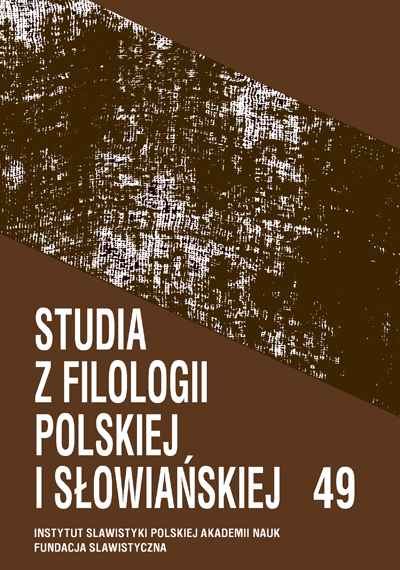Uwagi o ekwiwalencji słów kluczowych w systemie informacyjnym iSybislaw (na przykładzie wybranych terminów gramatycznych)
Some remarks on the equivalence keywords in the iSybislaw system information (based on selected grammatical terms)
Author(s): Iwona ŁuczkówSubject(s): Library and Information Science, Cataloguing, Classification
Published by: Instytut Slawistyki Polskiej Akademii Nauk
Keywords: bibliographic database; interlingual equivalence; iSybislaw; keyword; linguistic terminology; Slavic languages; term
Summary/Abstract: The article focuses on one of the issues connected with the development of the information retrieval system iSybislaw. The system contains a biographical database of Slavic linguistics which is available online at www.isybislaw.ispan.waw.pl. An important element of the system are key words, and the main aim of the international team of Slavist linguists developing the iSybislaw system in cooperation with the Slavic Academic Information Centre (CSIN) is to create a multilingual dictionary of terms related to various areas of Slavic linguistics, that is to establish terminological equivalents in Slavic languages and in the English language. Establishing multilingual terminological equivalents is essential not only for Slavic theoretical linguistics but also for language corpora which require morphosyntactic marking, especially parallel corpora. The analysis presented here allows for drawing the conclusion that the dictionary of multilingual key terms of Slavic linguistics for the iSybislaw system should be developed (or at least verified) by specialists in individual areas of Slavic linguistics (phonetics, morphology, syntax, word formation, dialectology, ethnolinguistics, etc.). Because of the adopted principle that Polish keywords are used as descriptors in the iSybislaw system, the linguists should compare the Polish system of terms with the terminology used in other Slavic languages. Thanks to such “specialization” we could be quite sure that the person establishing the equivalents knows various descriptive traditions of linguistics, and in the future this would allow us to avoid many of the mistakes connected with the differences in the range of the term or the lack of appropriate equivalent in another language.
Journal: Studia z Filologii Polskiej i Słowiańskiej
- Issue Year: 2014
- Issue No: 49
- Page Range: 203-218
- Page Count: 16
- Language: Polish

